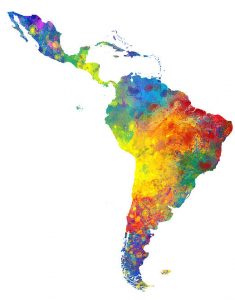Colada Shop uses Cuban food not only to introduce Cuban culture to D.C. but to preserve it as Cuba continues to face scarcity and exodus that erases the authenticity of Cuban culture.
Washington, (D.C.)- As Cuba continues to face food scarcity and exile under a sixty-year-dictatorship, Colada Shop creates a variety of Cuban specialties that vary from coffee to pastries to preserve Cuban culture.
“Cuba is a culture that’s been paused,” says Mario Monte, Culinary director and Co-owner of Colada Shop.
Cuba’s sixty-three-year dictatorship has paused the generational teaching of food recipes that have persisted for centuries because of food scarcity and policies such as ration cards and the prohibition of red meat.
“Cubans live in survival mode,” says Mario.
Mario is Venezuelan-Cuban. He was born in Venezuela, but his dad is from Santiago, Cuba. He later moved to Miami.
Miami is considered to be the “Cuban hotspot.” For Mario, Miami-Cuban food versus Cuban food on the island is very distinct, as Cubans inside the island have had to modify it because of the scarcity that persists.
The idea of Colada shop is to bring about the concept of Miami-Cuban food, but of course, keep their essence, says Mario.
“My take for my recipes are those of my grandmother from my father’s side.” “I cook as if the Revolution had never happened,” says Mario.
As with any business, the clientele determines what is sold, Mario says that many of the clientele that visits Colada Shop come from the DMV area.
“People from the DMV area are used to the Tex-Mex frijoles, so in a way they are not accustomed to what we know as our Arroz con frijoles or picadillo—ropa vieja, that is why I’ve introduced Cuban sofrito in small pastries such as empanadas, pastelitos, and croquetas, to get them used to the Cuban flavor.” says Mario
As Colada Shop becomes busier and more people are getting used to the flavor, Mario has now introduced the “Santiago Bowl” which is a modern take of the typical Arroz con frijoles and a choice of protein that includes mojo pork, ropa vieja (stewed beef), and sofrito chicken.
Last year, massive protests erupted in Cuba in a chant for “Patria y Vida” (homeland and life), which prompted the exile community in the United States to march in consolidation throughout a variety of cities in the United States.
When the big demonstration occurred in Capitol Hill, Colada Shop was there to hand out pastelitos and empanadas to participants.
“My form of protest is food, there are many ways to show support and consolidation, creating and showcasing Cuban recipes is my take in the movement.” “Of course, I believe in Patria y Vida, but it has to be Cubans on the island to demand and fight for that change,” says Mario.
Mario is the only Cuban at the Colada shop, the other owner is Dominican, and the assistant manager is Puerto Rican.
Employees range from Latinos, Asians, and Middle Eastern—they all share in common the love for Cuban food and culture.
“Serving Cuban food is one of my favorite parts of the job!” says Danielle, Assistant manager for Colada Shop.
Cuban culture has also come to save Colada Shop after COVID-19 restrictions led to major losses in many businesses. La Ventanita is a small-counter service, where customers grab-and-go food and beverage items.
“La Ventanita was extremely useful during COVID-19,” says Mario.
Colada Shop plans to open another location at Dupont Circle during the Fall of 2022.

Reblogged this on Freedom Latin America.
LikeLike